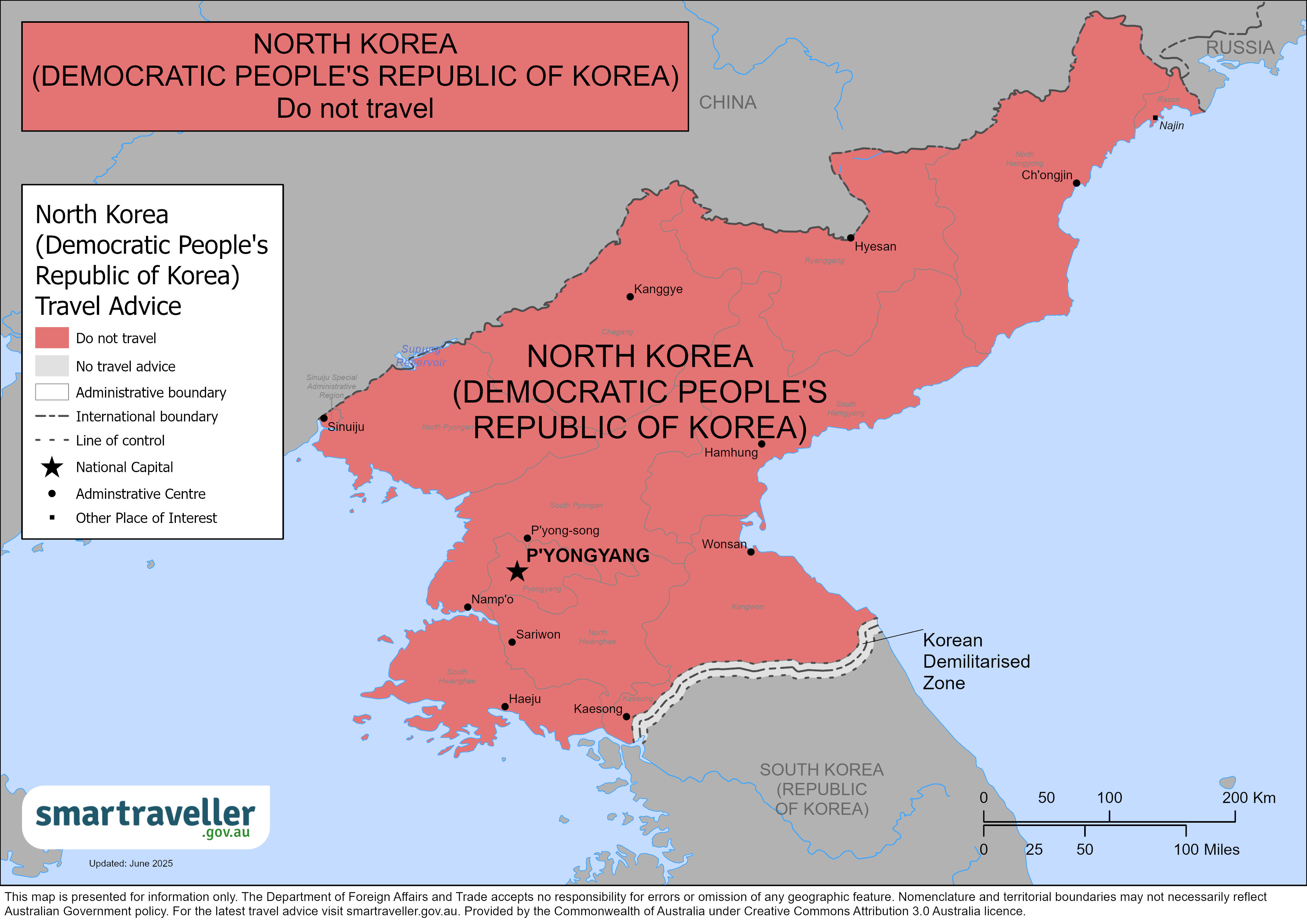- Travelling as part of a tour or with a guide doesn't give you special protection from North Korean laws. Authorities may arrest, detain or expel you for activities that aren't crimes in Australia. Even if you meet all entry requirements, you may still be arbitrarily arrested and/or detained at your point of entry.
- North Korea and South Korea are technically still at war, and tensions on the Korean Peninsula can increase with little warning. North Korea regularly conducts missile launches or other provocations, raising regional tensions. Monitor developments.
- The North Korean Government restricts information, especially about domestic politics and international relations. You may be able to access international satellite TV channels at some tourist hotels. However, if the government shuts these down in a crisis, you may not know what's happening. Monitor state broadcasts and, if possible, international media for signs of increasing tensions.
- Crime against travellers is rare. However, some travellers have reported petty crimes. Keep your passport and belongings close, especially at Pyongyang Airport and public markets.
- The rainy season is from June to August, and typhoons can occur in August and September. Excessive rain can cause flooding and landslides, damage housing and infrastructure, and disrupt essential services. Know your hotel's evacuation plan.
- Earthquakes are rare on the Korean Peninsula, but tsunamis caused by earthquakes are a risk. Know the tsunami warning signs and move to high ground straight away. Don't wait for official alerts, warnings or sirens.
Full travel advice: Safety



